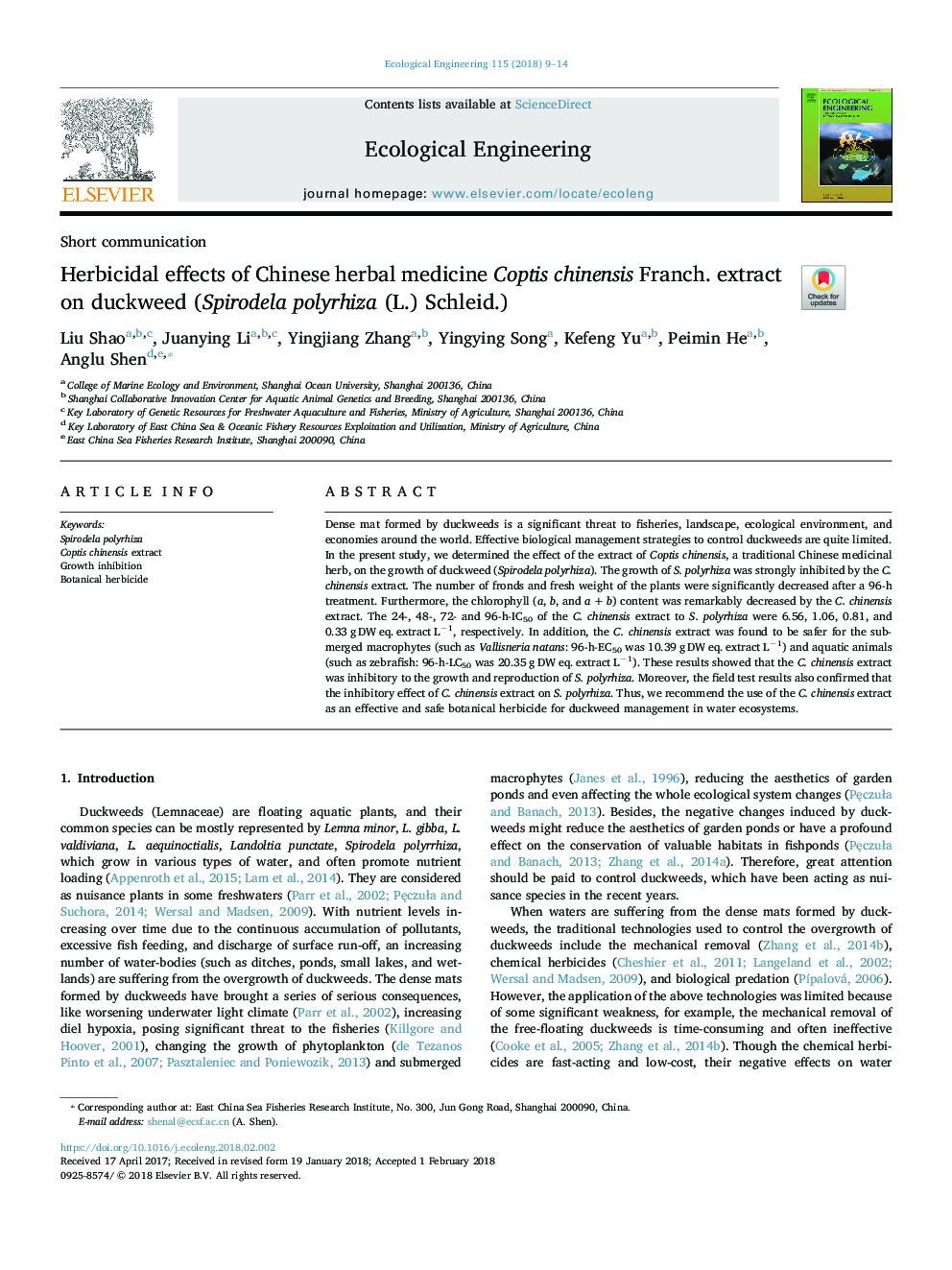| Article ID | Journal | Published Year | Pages | File Type |
|---|---|---|---|---|
| 8847942 | Ecological Engineering | 2018 | 6 Pages |
Abstract
Dense mat formed by duckweeds is a significant threat to fisheries, landscape, ecological environment, and economies around the world. Effective biological management strategies to control duckweeds are quite limited. In the present study, we determined the effect of the extract of Coptis chinensis, a traditional Chinese medicinal herb, on the growth of duckweed (Spirodela polyrhiza). The growth of S. polyrhiza was strongly inhibited by the C. chinensis extract. The number of fronds and fresh weight of the plants were significantly decreased after a 96-h treatment. Furthermore, the chlorophyll (a, b, and aâ¯+â¯b) content was remarkably decreased by the C. chinensis extract. The 24-, 48-, 72- and 96-h-IC50 of the C. chinensis extract to S. polyrhiza were 6.56, 1.06, 0.81, and 0.33â¯gâ¯DWâ¯eq.â¯extractâ¯Lâ1, respectively. In addition, the C. chinensis extract was found to be safer for the submerged macrophytes (such as Vallisneria natans: 96-h-EC50 was 10.39â¯gâ¯DWâ¯eq.â¯extractâ¯Lâ1) and aquatic animals (such as zebrafish: 96-h-LC50 was 20.35â¯gâ¯DWâ¯eq.â¯extractâ¯Lâ1). These results showed that the C. chinensis extract was inhibitory to the growth and reproduction of S. polyrhiza. Moreover, the field test results also confirmed that the inhibitory effect of C. chinensis extract on S. polyrhiza. Thus, we recommend the use of the C. chinensis extract as an effective and safe botanical herbicide for duckweed management in water ecosystems.
Keywords
Related Topics
Life Sciences
Agricultural and Biological Sciences
Ecology, Evolution, Behavior and Systematics
Authors
Liu Shao, Juanying Li, Yingjiang Zhang, Yingying Song, Kefeng Yu, Peimin He, Anglu Shen,
